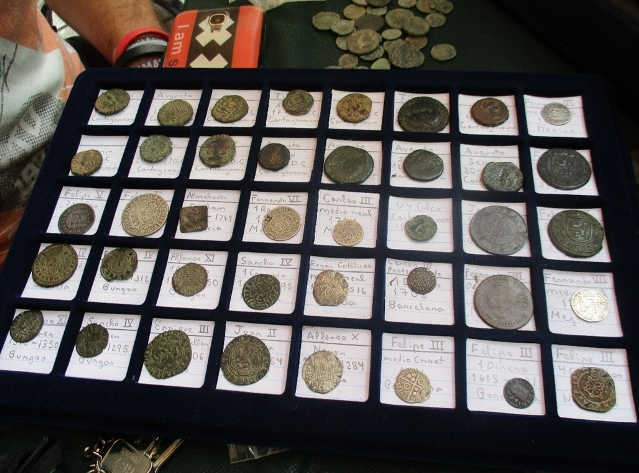
As part of a police operation to dismantle an international network of art traffickers, the European Police (Europol) have recovered 3,561 stolen archaeological items and arrested 75 people.
The arrests were announced on Sunday by the Spanish Interior Ministry. According to a release issued by the Guardia Civil (a Spanish police force), the criminals trafficked items looted from war-stricken countries and artifacts stolen from museums.
In Murcia, southeastern Spain, police recovered around 500 archaeological pieces, including 19 items that had been stolen from the city’s archaeological museum in 2014. The Spanish police also recovered over 400 ancient coins, some of which were found by tracing suspicious ads online.
Image of St. George recovered as part of Operation Pandora. Courtesy Guardia Civil.
In Greece, the authorities siezed part of an Ottoman tombstone, Byzantine objects, and an 18th century image of St. George.
The operation—called Pandora and involving 18 European countries—was led by investigators from Spain and Cyprus, and took place during October and November 2016 with the support of several international organizations, including Europol, Interpol, UNESCO, and the World Customs Organization.
Europol provided experts, while Interpol gave access to its database, in which over 50,000 stolen objects are registered. Meanwhile, the World Customs Organization alerted all the customs institutions of the operation in course, while UNESCO provided advice to the countries participating in the operation.
The other countries involved in Operation Pandora are Austria, Belgium, Bulgaria, Bosnia and Herzegovina, Croatia, Germany, Greece, Italy, Malta, the Netherlands, Poland, Portugal, Romania, Serbia, Switzerland, and the UK.